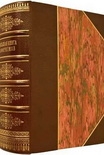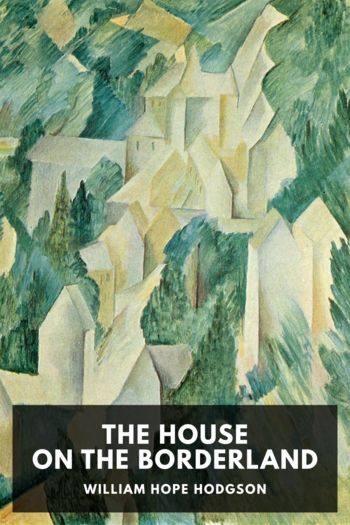Gluck by Diana Souhami (most interesting books to read .TXT) 📗

- Author: Diana Souhami
Book online «Gluck by Diana Souhami (most interesting books to read .TXT) 📗». Author Diana Souhami
And all who heard should see them there,
And all should cry, Beware! Beware!
His flashing eyes, his floating hair!
Weave a circle round him thrice,
And close your eyes with holy dread,
For he on honey-dew hath fed,
And drunk the milk of Paradise.
The painting consoled Gluck during frequent weeks of separation while Nesta travelled the world with her American husband, Seymour. Married in 1925 when Nesta was thirty-one, he a widower some thirty years older, the Obermers led a glittering international social life with friends plucked from Debretts and Who’s Who. They wintered in Switzerland for the sports and summered in Venice.
Beautiful, stylish, glamorous, life-enhancing, magnetic, charismatic, silver, are the adjectives used of Nesta by those who knew her. She added style to her elderly husband’s life but spoke of the marriage as not meaning much to her. In her youth she had been in love with a Duke to whom marriage was not a possibility. As a child she contracted peritonital tuberculosis which left her unable to have children and dukes want heirs. She was confined to bed for a year:
Brighton on a balcony for a year wasn’t at all bad – quite fun looking back. Fun waking at night with snow on my bed, feeling warm. Listening to Chopin’s Ballades being played by a pianist very loudly in the drawing room for me to hear – and reading, reading. Also I learned very young to love being alone. That was good.2
Her maiden name was Ella Ernestine Sawyer. She was an only child and her father, a Diplomat, advised her to marry when she did. Unmarried daughters of thirty were a problem to their fathers in the 1920s. Of her mother, the daughter of a judge, she wrote aged seventy-six to Gluck (undated, 1969): ‘I can’t remember one thing she gave me either in words or example and I know she never really liked me.’
Her early ambitions were literary and in 1921 she published a slim volume called The Reason of the Beginning and Other Imaginings – airy pieces about eternity. In her literary pursuits she called herself Nesta Sawyer. Her poems, some of which she set to music, were published and broadcast and she had what she called a ‘bedroom’ programme, reading poetry late at night on the wireless. Between the wars two of her plays were staged by her lifelong friend the actor-manager Leon M. Lion, So Good! So Kind! at the Playhouse and Black Magic at the Royalty. The action of Black Magic took place in the ‘Morning Room of Chalfont Manor’ and starred Franklin Dyall and Athene Seyler. Rowntrees, struck by the title, took it for their boxes of plain chocolates.3
‘Medallion’ celebrated Gluck’s ‘marriage’ to Nesta on 25 May 1936. In subsequent diaries Gluck marked this date as her YouWe anniversary. At some point they exchanged rings. Visitors to the studio understood the implication of the picture and felt its sexual edge. They thought it more Wagner than Mozart and likened the heroic heads to Siegfried, to Valkyrie. ‘Vous aimez cette femme,’ said the Berlin psychoanalyst Dr Charlotte Wolff, author of Love Between Women, when dining with Gluck while Nesta was in St Moritz. She knew Gluck and the Obermers and had ‘read’ all their characters through their handwriting and palms:
My instantaneous reaction was to puke violently. Vomit! It was quicker than light what I said. I deliberately seized on the word ‘aimez’ and using it by intonation and inflection and timing in its most hearty British way, said ‘Mais oui, certainment. Je l’aime beaucoup. Elle est si gentille et si bonne.’ My face, which is a complete mask in one way to her, the way I want it to be to everybody, conveyed only the most ingenuous and naive agreement and interest in what she had said. I twisted completely away from her meaning. She was thrown back on her haunches. I almost heard the fall and she just gave it up.4
Leon M. Lion wanted a snapshot of it even unfinished. ‘I want permanently to memorise an unforgettable impression!!!’ he wrote to Gluck (15 December 1936). Lady Mary Villiers, who was married to a Rear Admiral and lived in Hatfield Grange, wrote to Nesta (8 January 1937) that she thought it remarkable of her, Nesta, but that Gluck missed herself. ‘She has so much beauty in her face she probably doesn’t know it.’ Though Gluck’s narcissism in the picture is disturbing, it gives a better likeness of Nesta. Strength and fearlessness were Nesta’s attributes. It was she who lived life to the full, charmed people with her glamour, generosity and understanding, had a go at everything – painting, writing, singing, drove fast cars, got her pilot’s licence, did yoga, got gold medals for skating and skiing, and travelled the world. In the picture Gluck has absorbed into Nesta’s identity.
Gluck could play at being less than ‘ingenuous and naive’ when she chose. In January 1937 ‘YouWe’ stood beside a picture she was working on, of tinsel, iced cake and baubles, celebrating the first Christmas she had spent with Nesta and Seymour at their country house in Plumpton, Sussex. Molly Mount Temple (‘Emptée, as Gluck and Nesta called her for the way she pronounced her initials) came to dinner with Gluck while Nesta was away. She arrived at Bolton House with a flurry of instructions about the provision of food for her chauffeur and after drinks in the studio
became almost hysterical for her with excitement over the ‘Noel ‘picture. Went on and on saying





Comments (0)